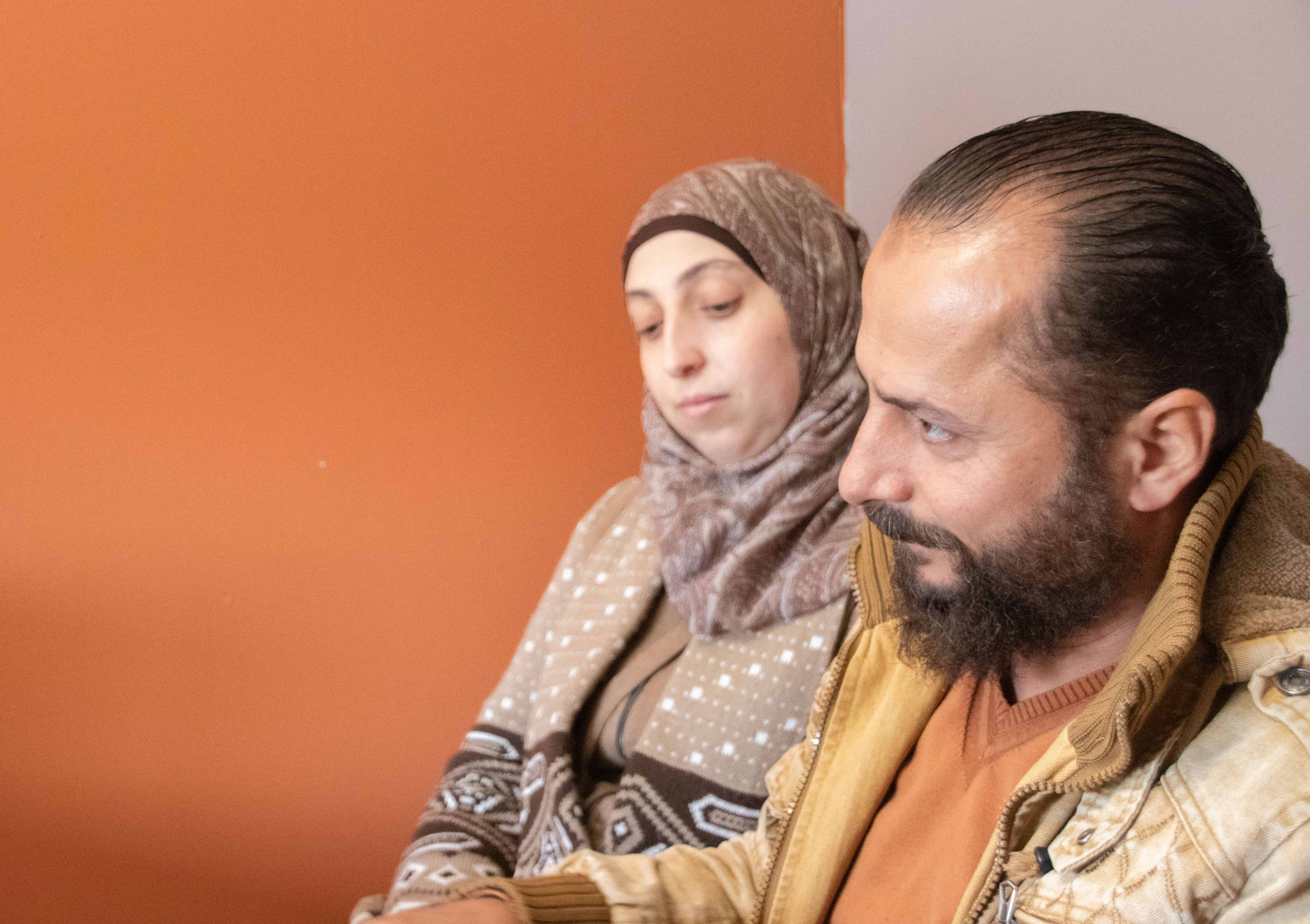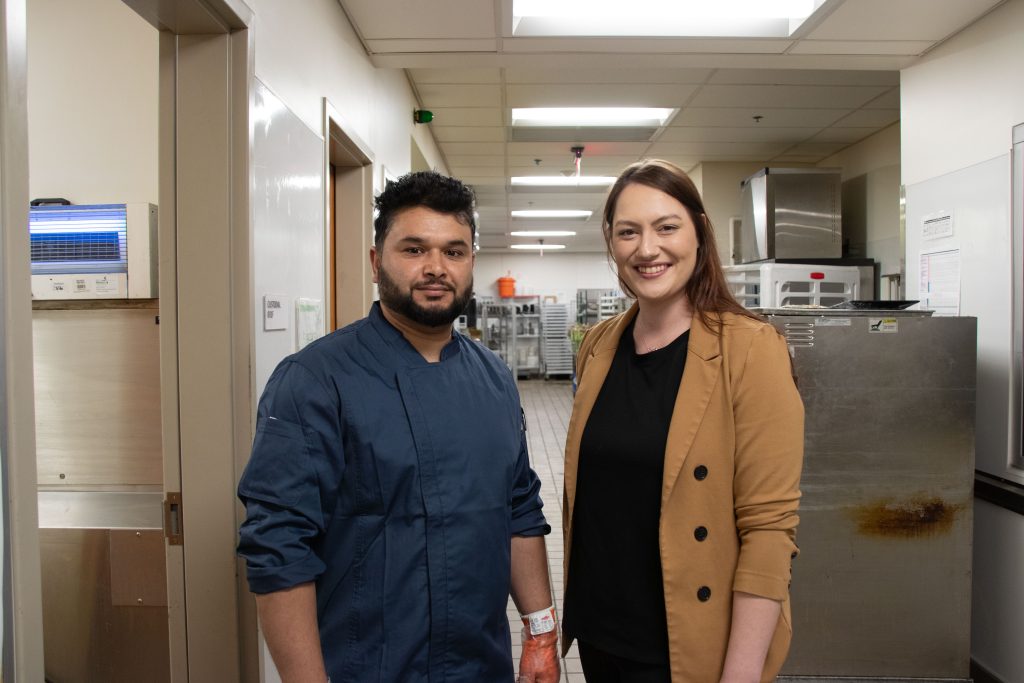The Ins and Outs of Employment for Refugees and Other Immigrants
Continuing our series on Tough Questions, we “grilled” Jared Booker, Director of Economic Empowerment. In order to become self-sufficient, the majority of new arrivals need to find a job pretty quickly. Chances are, that job is going to be entry-level while they work on their English skills and acclimate to their new surroundings. That can be tough, especially on experienced professionals, whose credentials do not transfer from their country of origin to the United States. Some clients also find it difficult to comply with Job Search requirements – filling out logs, coming to Job Readiness Workshop and attending English classes.
Just to keep Jared on his toes, we started this interview with a doozy.
Are immigrants taking our jobs?
The short answer is, absolutely not! Incoming refugees and immigrants have been able to bring complementary skills to the existing workforce rather than directly competing with American workers. These populations are also known to have high rates of entrepreneurship, creating new businesses that employ Americans! Refugees and immigrants also provide labor market flexibility, taking jobs in industries where there is a shortage of workers, creating further economic growth. This flexibility is crucial for the seasonal job market in particular. It’s also important to keep in mind that these legal workers in the U.S. pay tens of billions of dollars in taxes each year. It is our firmly held belief that jobs create jobs create jobs create jobs.
“In 2019 alone, the nearly 2.4 million refugees examined in the analysis generated a remarkable $93.6 billion in household income, contributing $25 billion in taxes and leaving them with $68.6 billion in disposable income to stimulate the U.S. economy”
American Immigration Council
Are refugees and other immigrants a drain on our economy? Are they basically freeloading?
According to a study by the U.S. Department of Health and Human Services, the fiscal impact of refugees and asylees over a 15-year period was a net positive of more than $123 billion. It does take time for them to inject back into the economy what was spent to get them on their feet initially, but with time, the impact is exponentially positive. Much like a car loan or a mortgage, ownership of one’s new life in America takes time, but the result is worth the wait.

Who are you helping to get a job in Economic Empowerment? (Who is covered under your government contracts?)
Without getting into the weeds too much, we assist refugees and other immigrants, all of whom are legally qualified to work in the United States.
For first jobs, we receive referrals from the Washington State Department of Health and Social Services. Job Search is an important element of receiving benefits through DSHS, and we are required to report on our clients’ progress. It is almost as if our clients are working for the state – doing job search – while they are receiving benefits. Clients turn in logs showing their job search activities weekly. They attend Job Readiness Workshop every other week, where the class is interpreted in their language, and they meet with their case manager regularly for coaching.
Are there any refugees or other immigrants you cannot help get a job? (Who is not covered under your government contracts?)
In some cases, we are unable to assist asylum seekers who have not had their asylum case approved. This is because their court date for an asylum decision is scheduled for a time and date beyond the timeframe of our services. In these cases, we encourage the individual to continue to attend ESL and work with an immigration attorney to help them navigate the process. Additionally, whenever someone is on the Food Assistance Program through the state, we refer them to a contractor that has the ability to assist.
We never want to tell someone we are unable to assist them without pointing them in the direction of someone, or some program, who can.


What kind of help do your contracts require/allow you to provide?
Our contracts focus on appropriate empowerment, not enablement. We provide our clients with an experienced employment case manager, job readiness workshops, and culturally appropriate services. Within case management, we assist with resume building, interview prep, job application submission, and training on how to search for a job in America. Our job is to coach, explain, and encourage clients to take responsibility for their lives. We realize that grace will need to be extended early and often. We will never give someone instruction without proper explanation and understanding.
What are you not able to provide?
We are unable to guarantee a position in the individual’s vocation of choice. This may be one of the most frustrating realities for our clients. We have medical students who are placed in hospital maintenance, doctors who become community health workers, veterinarians who become techs. The first job in America may be humbling. Patience and perseverance are required as the client learns English, establishes himself or herself and perhaps returns to school.
Another thing we cannot do is fill out a client’s job search log for them. We will teach and allow for translation, but we cannot do the work for them. We cannot help with unemployment applications. We cannot help with filling out food benefit applications. We cannot help clients secure their employment authorization (EAD) or any other legal services. However, in all of these cases, we are trained to get our clients connected with the appropriate department or service in Spokane to meet their need.

Where are you seeing success within the system?
Job placements rose by 53% last year as more clients were matched with participating employers than ever before. From January 2023 to December 2023, World Relief Spokane was able to place our clients into 316 jobs, most of which were their first jobs in America. If we were to add up all of the approximate salaries of these placements, it would translate into 10.5 million dollars injected into the economy.
When does the system seem to fail?
The main way I am seeing the system fail is when other departments, contractors, or individuals step in and assist clients with something they are requesting without proper investigation/communication. There is so much power when we work together, and when services are not duplicated, the client wins in the long-term. In 99% of cases, if a client is requesting something urgently, there is someone already working on a resolution. Improper assistance can derail the work others are doing and can sometimes even affect the client’s public services. If I am being honest, when contractors, churches, and volunteers react, rather than respond to the needs, we find that we are working against one another.
In other words, sometimes well-meaning people interfere in the process because they want to help, but they end up taking agency away from the individual who needs to do that work himself in order to grow.
What are the biggest hurdles to refugees and other immigrants finding sustainable employment?
Language and transportation are the largest barriers to finding employment. However, the rising cost of living has made it quite difficult, and sometime impossible, for those jobs to translate into self-sufficiency.

How can the community (volunteers, churches, GNTs, donors) help with regard to assisting people with employment and related needs? How might the community help fill any gaps that exist or help stretch government dollars?
We LOVE our volunteers and GNTs. We truly could not do our job without their kindness and generosity. The greatest assistance we could receive is to reinforce the assistance the client is already enrolled in. We are really seeking to have better communication with volunteers and GNT members so that we aren’t working at odds but are rather complementing each other. There are definitely gaps in services sometimes where a volunteer or GNT can step in and assist clients and families in conjunction with what World Relief is already doing. It takes a whole community, and we are not blind to that.
What excites you about the future of this work?
The ability to step into someone’s life, even if just for a short time, and provide a safe and encouraging space for them to integrate. We work with some incredible individuals, and I am honored to be a part of their story in some way.
What causes you to lose sleep?
Knowing that there is so much need, and that we cannot be the Savior. There is only one of those. Also, giving support, resources, and assistance to our clients but not being able to control the narrative in the community. We work so hard, but if it is not exactly what the client wants, they have the power to spread discontent among the community.
Don’t take our word for it. Read this study from the U.S. Department of Health and Human Services on the positive impact refugees and asylees have had on the economy. Read what one employer said in the Journal of Business about his experience employing refugees.
“We love having partnerships with organizations like World Relief, where we’re able to help place their refugees into the workforce after they’re able to get their documents. We’ve had some really good success with organizations like that, and we appreciate those types of sponsorships.”
Grant Guinn, co-owner of Tru by Hilton Spokane Valley
